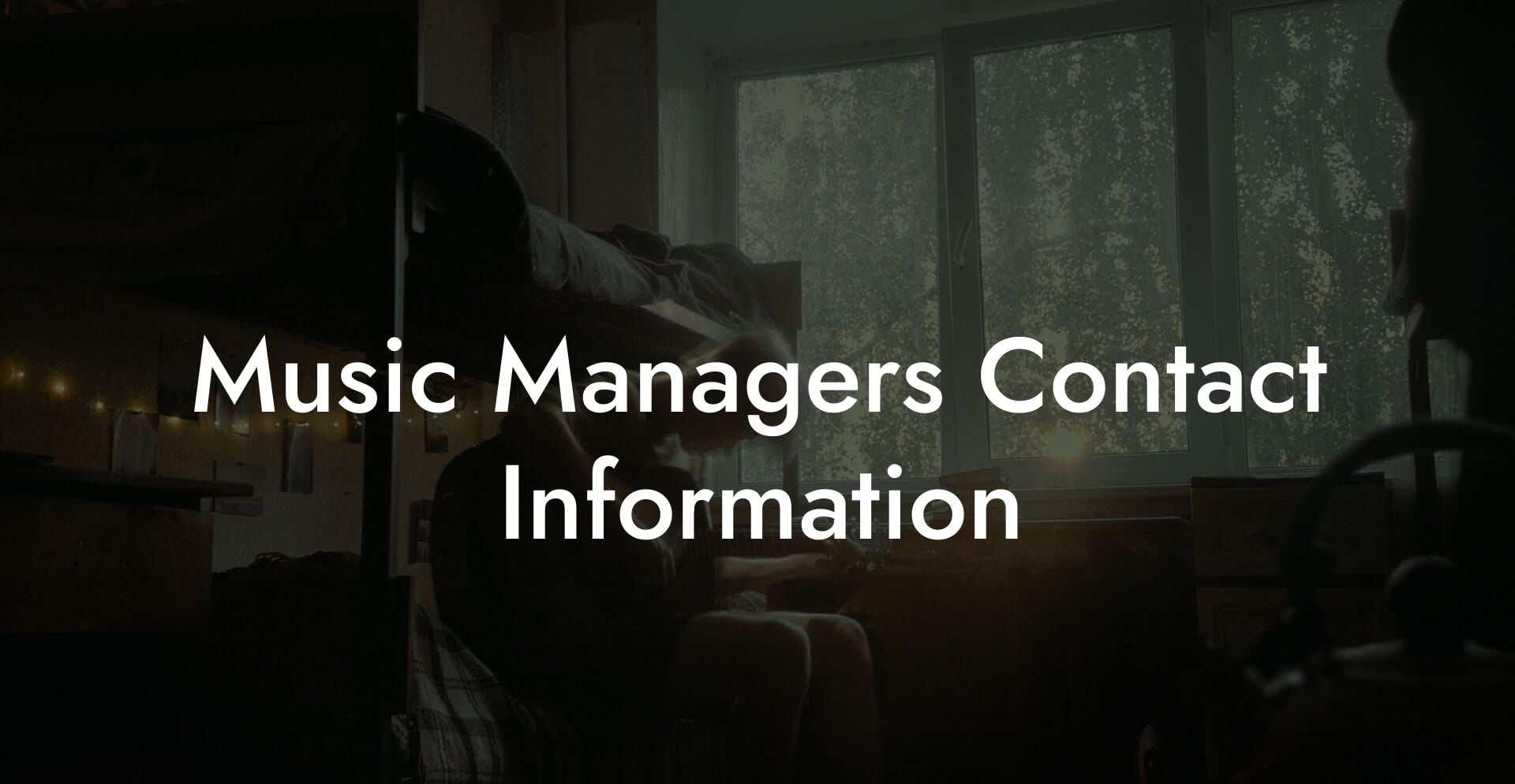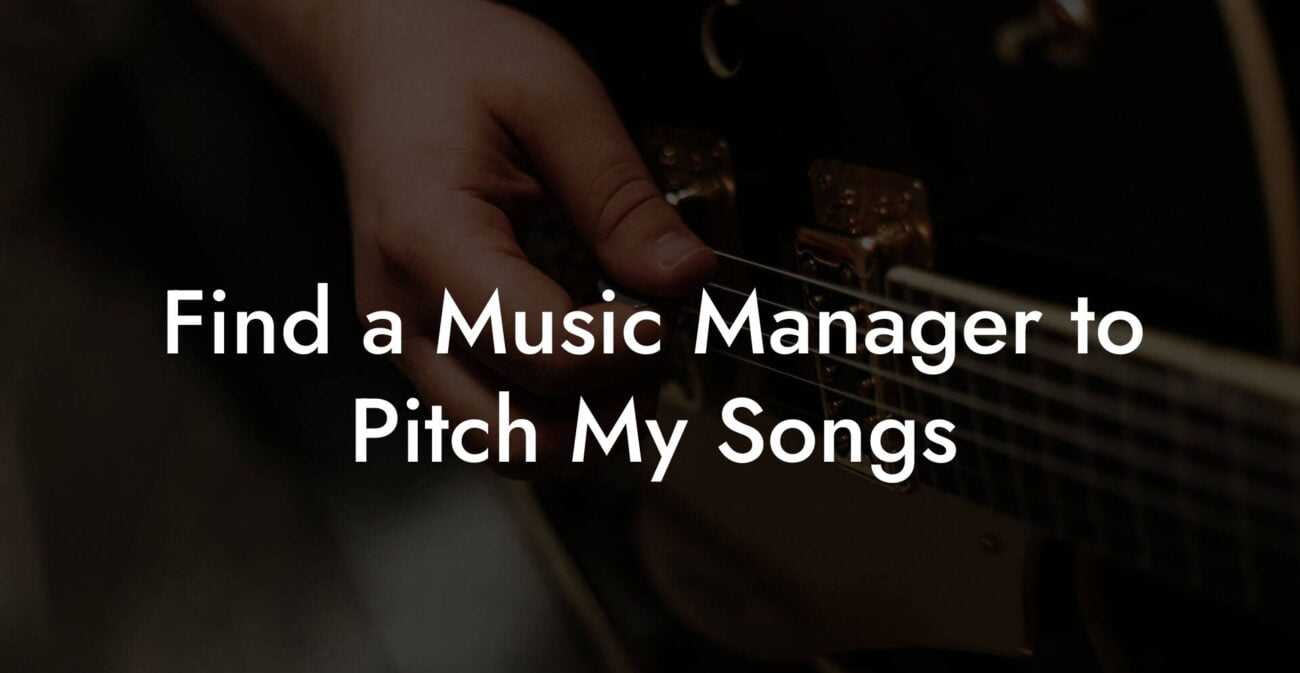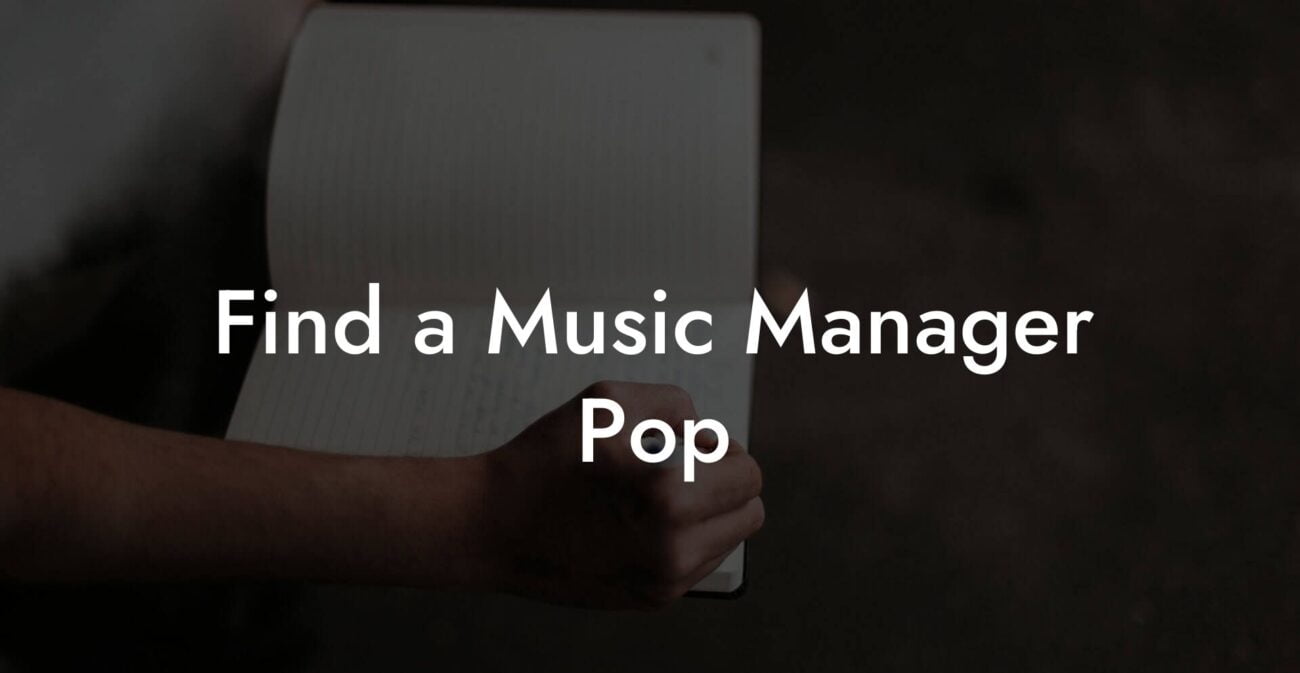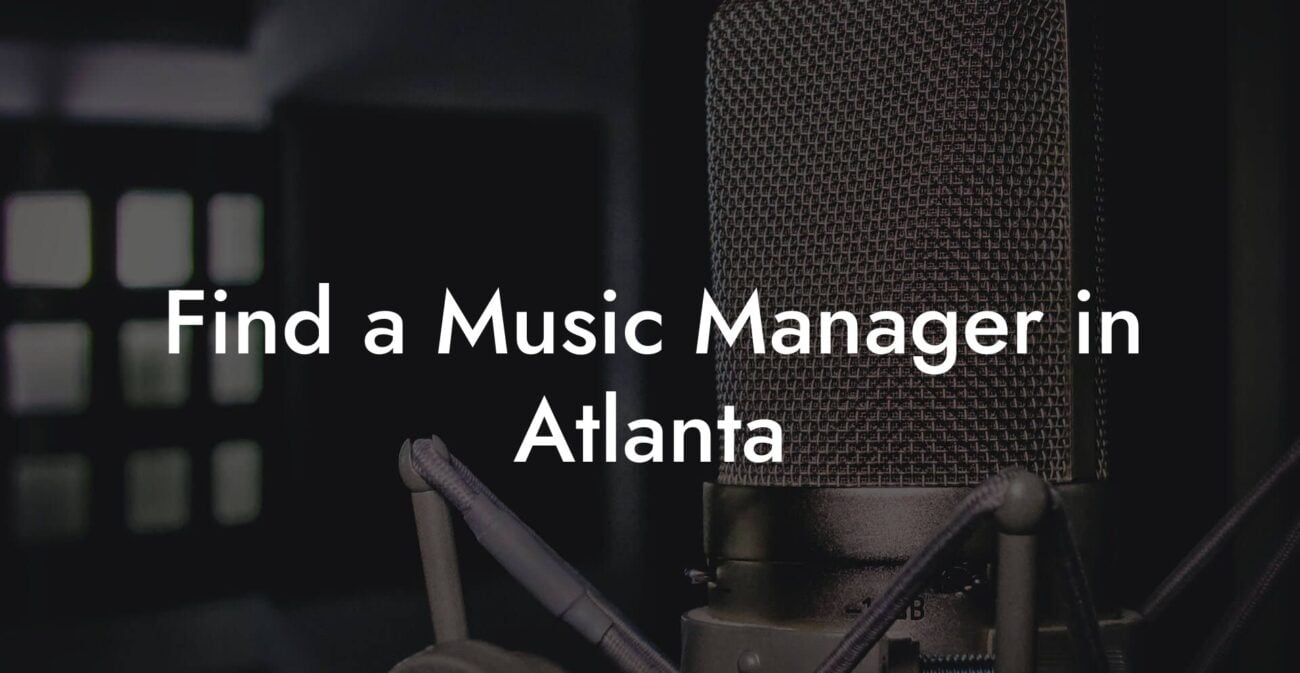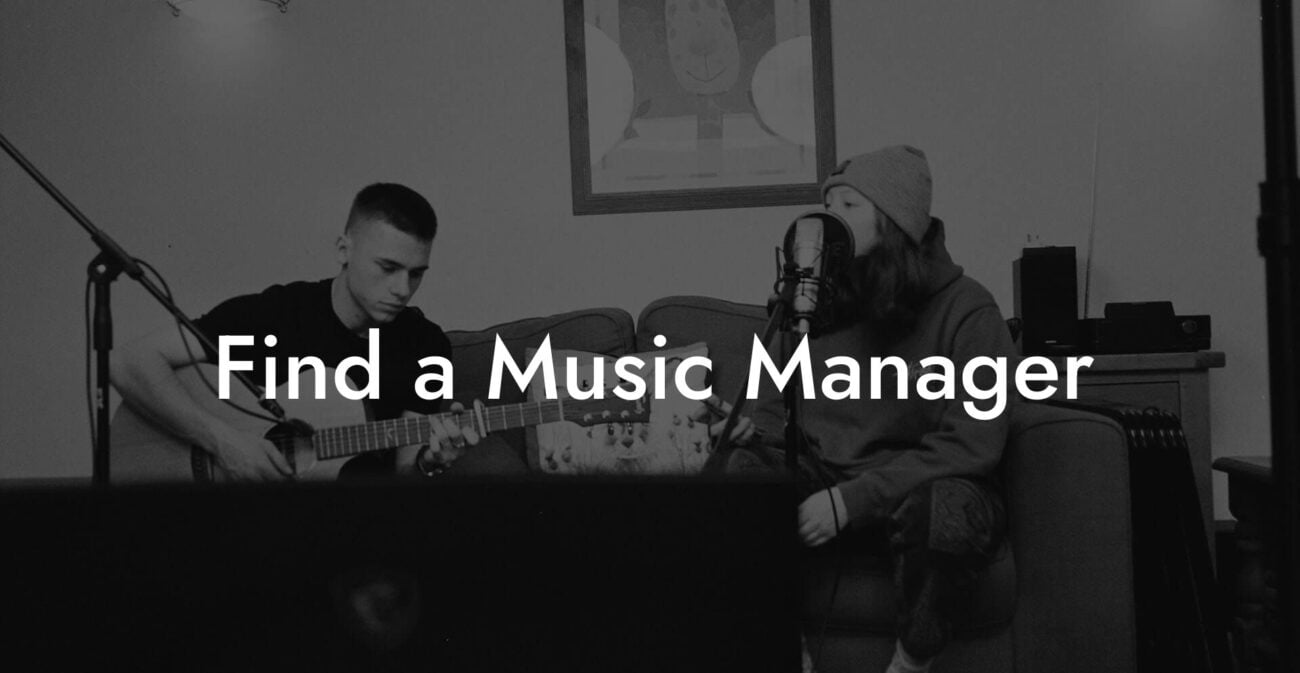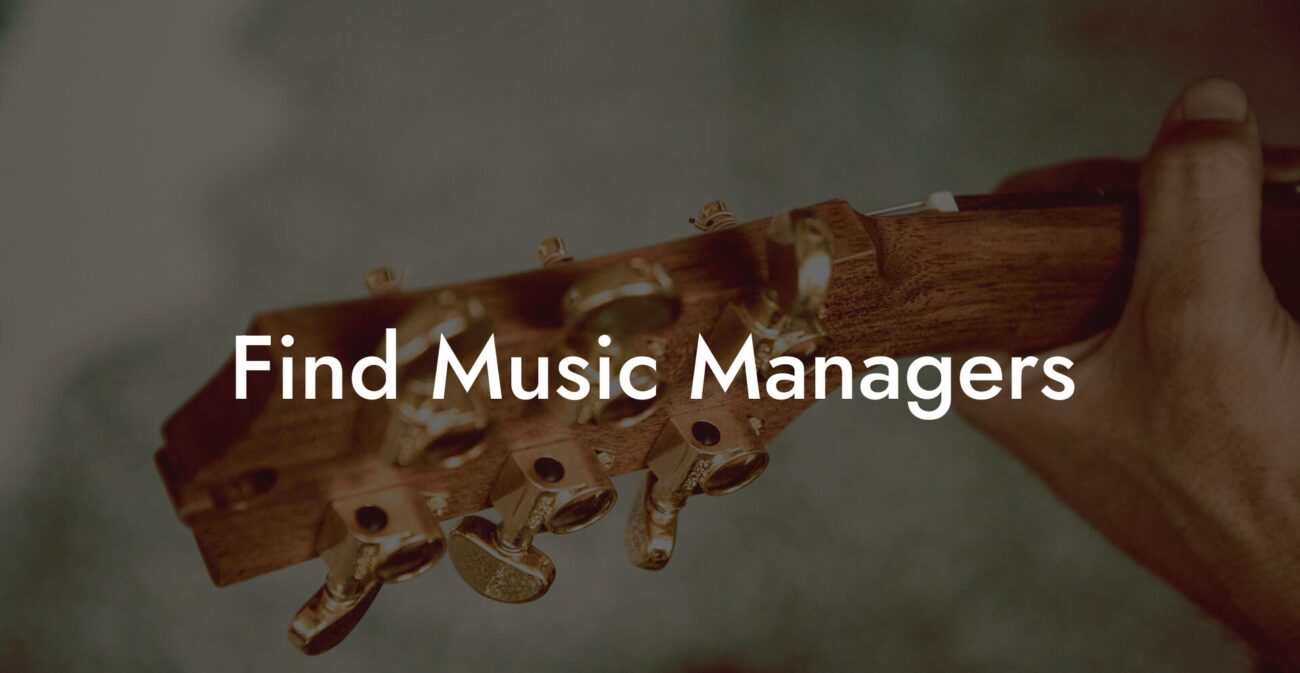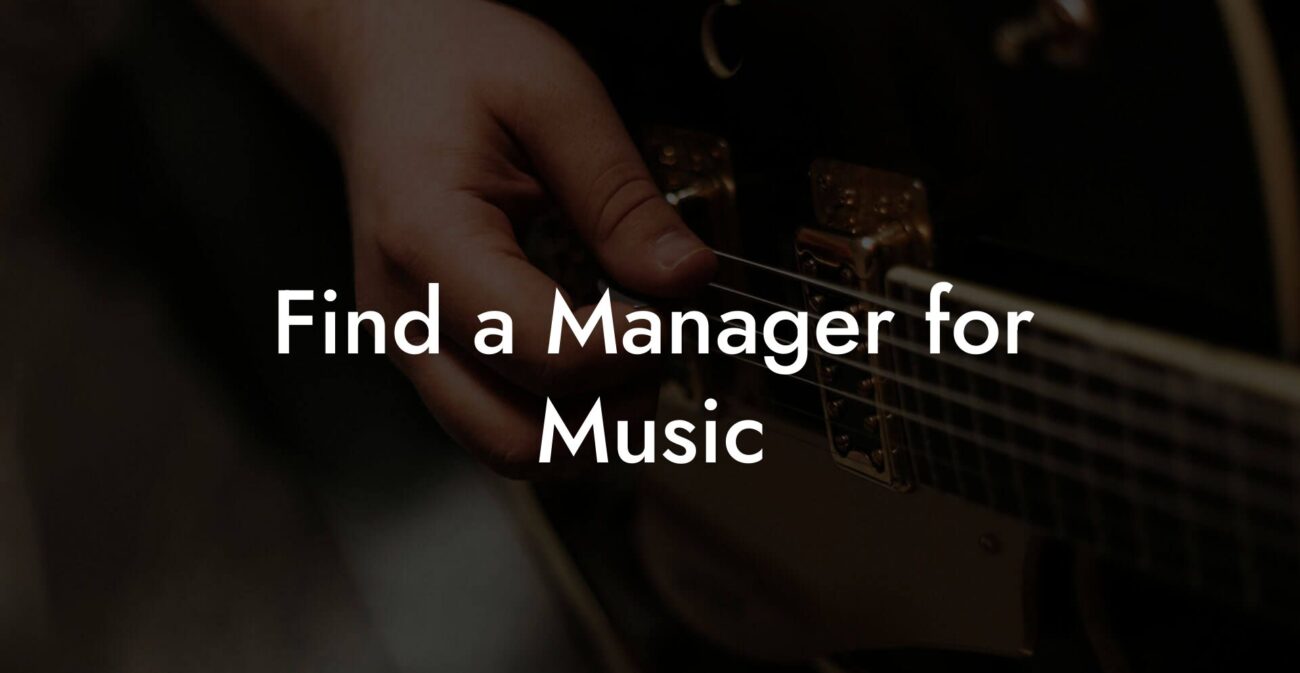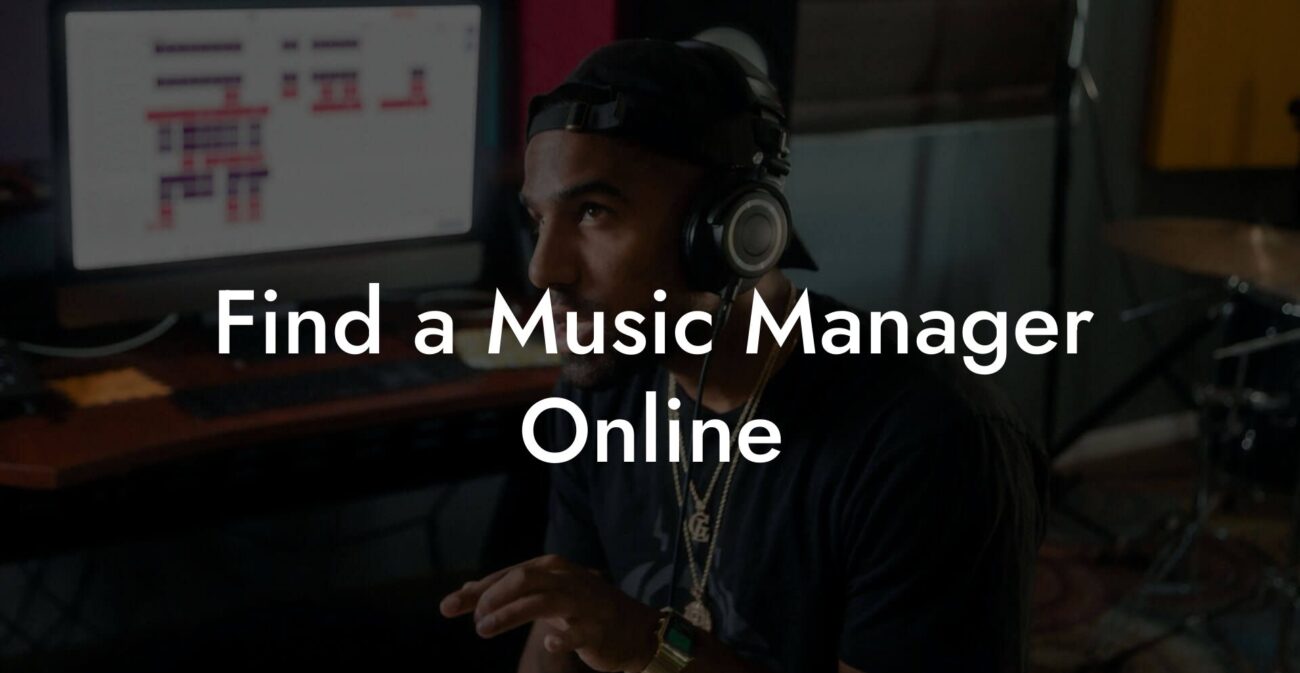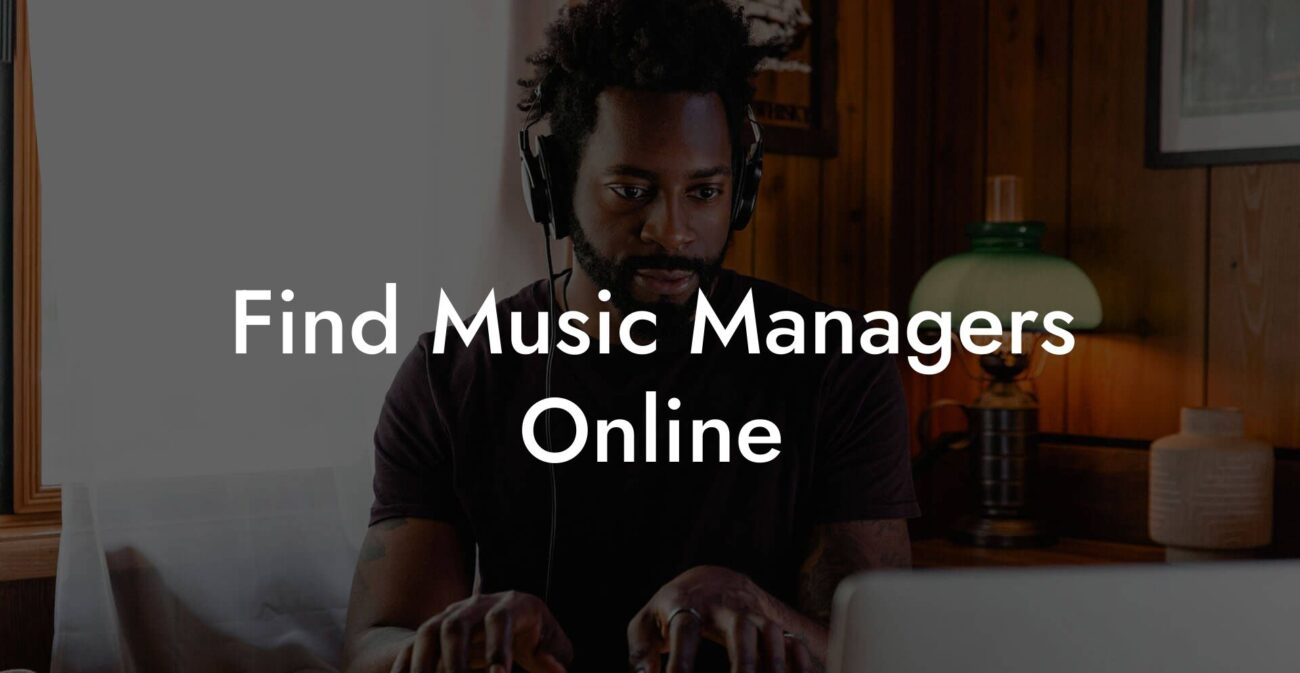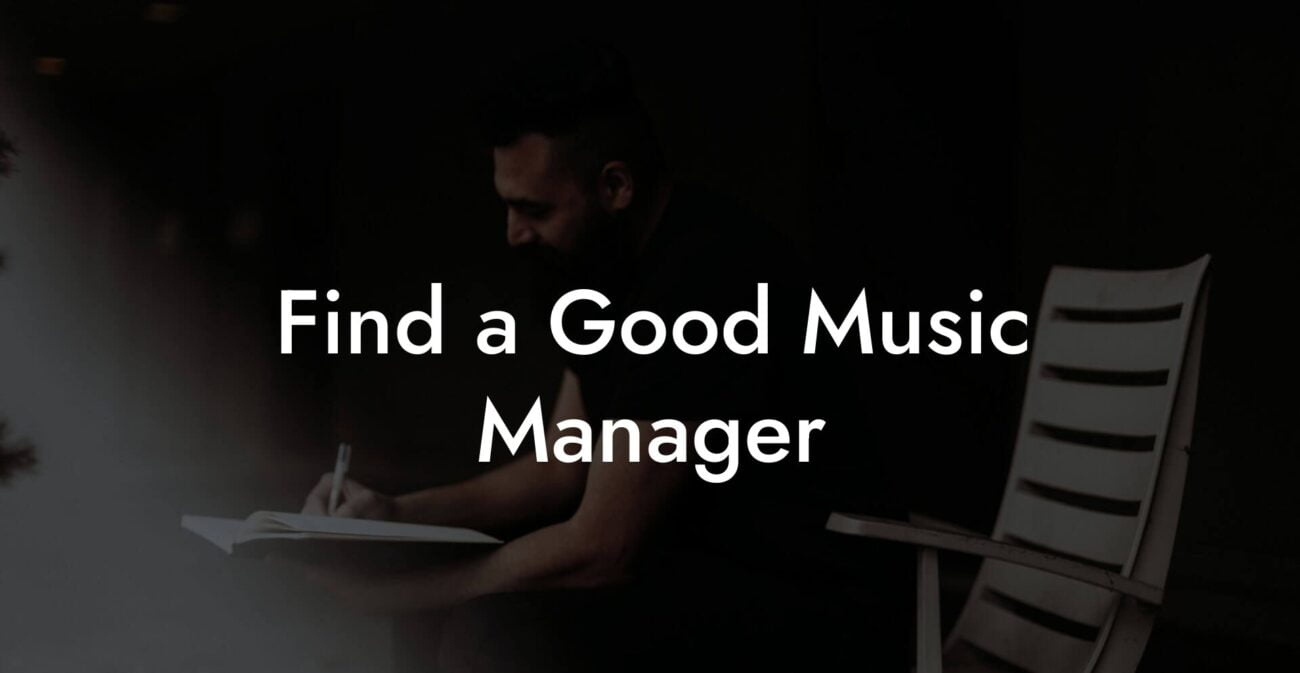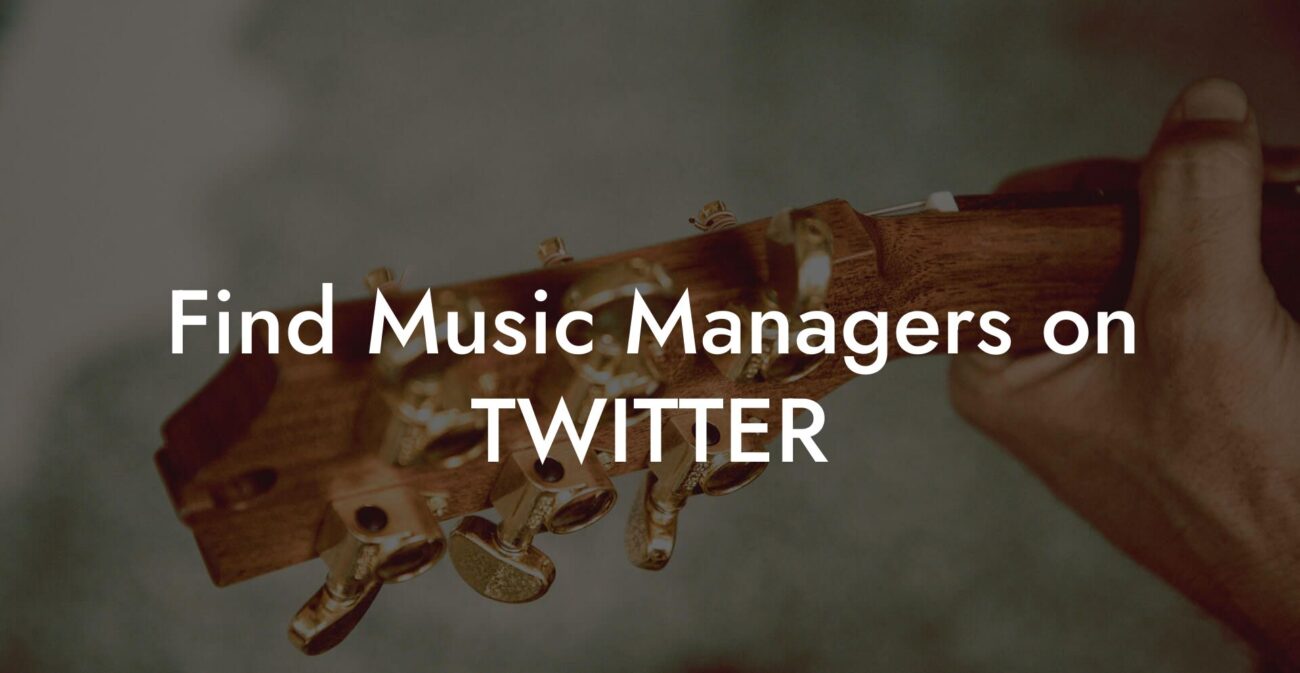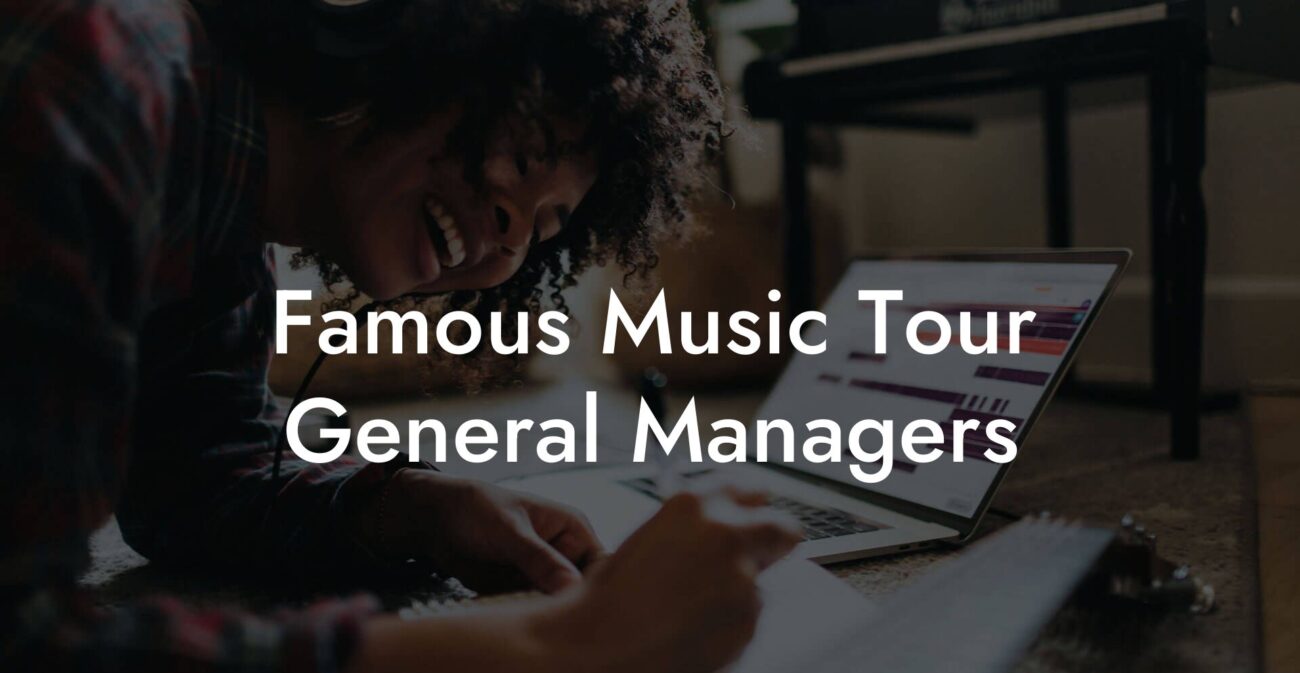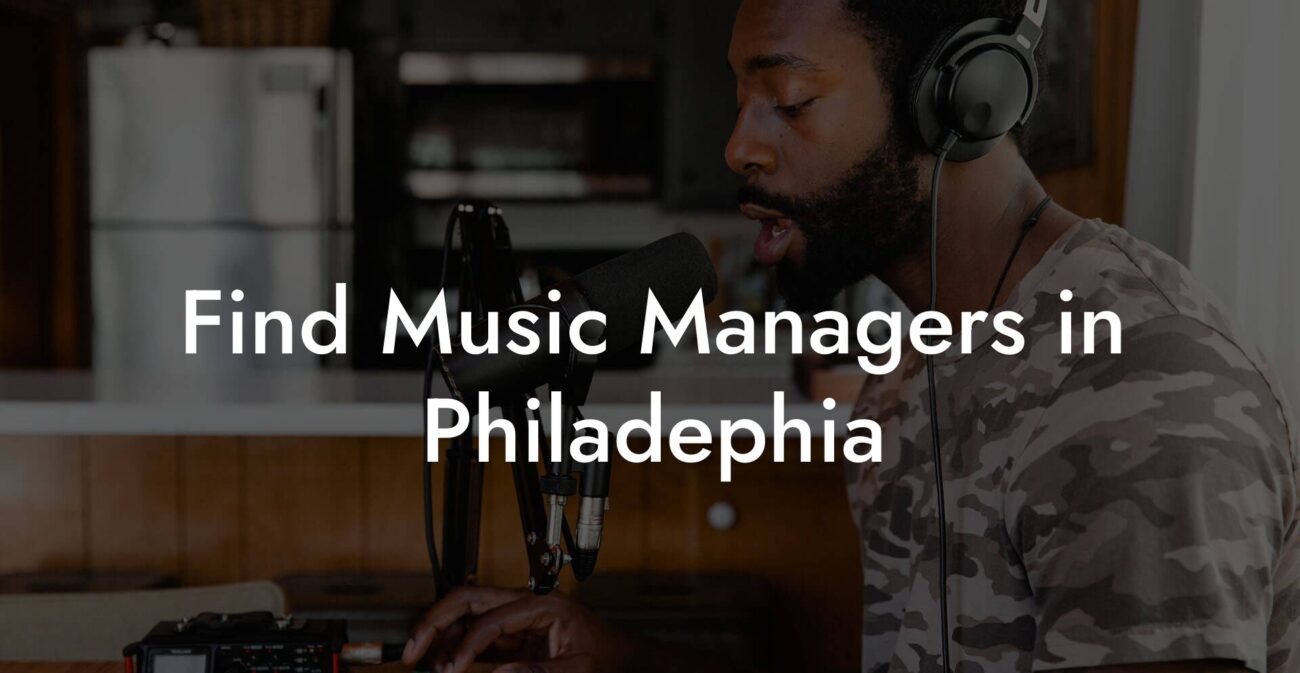When it comes to success in the music industry, contacting music managers can be an essential step. A good manager can be an artist's greatest ally—they are your advocate, your coordinator, your disciplinarian, and your friend. But how do you go about finding and contacting these people? In this article, we will unveil the hidden world of music managers, including essential contact information and other insider secrets.
Music Managers Contact Information Table of Contents
What to Provide to a Music Manager
Finding a Music Manager
Before reaching out to a music manager, research is key. Music managers can specialize in various genres, and therefore, it’s essential to target those who are best suited for your style of music.
- Use music industry directories and online platforms: Websites like Digital Music News, Music Business Worldwide and Manager Pro provide detailed lists of music managers across the globe.
- Attend music industry events: Networking events, conferences, and festivals often attract industry power players like managers. Events like SXSW and NAMM are great ground for meeting potential managers.
Contacting a Music Manager
After you've determined the suitable managers, the next step is making contact. A well-structured pitch can start a conversation and potentially land you a great manager.
Write Hit Songs Like a Professional Songwriter
The ultimate songwriting tool that takes your creative vision to the next level! With just a few clicks, you can unleash your inner songwriter and craft a hit that's uniquely yours. You own it.
- Craft a compelling email: Briefly introduce yourself, your music, and what you aim to achieve. Be concise and respectful of their time.
- Send a follow-up: If you don’t get a response, don’t hesitate to send a polite follow-up email after some time.
Do’s and Don'ts When Contacting a Music Manager
Engaging managers effectively requires a careful approach. Here are some dos and don’ts:
- Do be professional: Treat this as a business interaction, because it is.
- Don’t be impersonal: Address them by their name and show that you've done your homework about their work.
- Don’t send mass emails: Customized, thoughtful emails are far more effective.
What to Provide to a Music Manager
When contacting a music manager, you should also be ready to provide some information about yourself.
- Music: Share your best tracks but not your whole catalogue. Managers don't have time to go through every song you've ever made.
- Press Pack: This includes photos, bios, press releases, and facts sheets about you and your music.
- Online Presence: Links to your website and social media. The manager will want to see your image and style, plus how you interact with your fanbase.
Music Managers Contact Information Example:
Crafting the Perfect Pitch Email
Here’s an example of what a perfect pitch email to a music manager could look like:
Subject Line: Unique Indie Pop Band, XYZ, Seeking Representation
Body:
Dear [Manager’s Name],
My name is [Your Name], and I’m part of the indie-pop band XYZ. We have noticed and appreciated the work you've done with [Mention a band they manage within your genre]. We believe that our style aligns with several bands on your roster, and we could benefit immensely from your guidance and expertise.
Please find attached a few of our most popular songs, along with our press kit and social media links.
I look forward to hearing from you and discussing how our passions align.
Best,
[Your Name]
Ultimately, succeeding in the music industry is all about building relationships. Understanding how to professionally and appropriately contact music managers is a significant first step. Happy networking, and we hope these tips help you embark on your music industry journey on the right note.
Frequently Asked Questions
What are music managers and what do they do?
Music managers are professionals who guide the professional career of artists in the music industry. Their responsibilities include negotiating contracts and deals, organizing tours, managing schedules, and acting as an intermediary between the artist and the industry players such as record labels, promoters, and booking agents. They play a crucial role in helping artists to build their careers and navigate the complexities of the music business.
Why is it important to have the contact information of music managers?
Having the contact information of music managers is essential for networking and career opportunities within the music industry. It allows musicians, producers, and other industry professionals to connect with managers who have the potential to help advance their careers. Additionally, it provides a direct line of communication for business proposals, collaborations, and talent scouting.
How can I obtain a music manager's contact information?
Music manager contact information can often be found on artist websites, through industry networking events, music business directories, and social media platforms. Professional networking sites like LinkedIn can also be a good source. However, discretion should be exercised, and it's often better to get an introduction from a mutual connection if possible.
How should I approach a music manager for the first time?
Approaching a music manager should be done professionally. Begin by doing research on the manager to ensure they're a good fit for your style and career goals. When reaching out, be concise and clear about your intentions, provide your background and highlight how a partnership could be mutually beneficial. Remember to respect their time and express your appreciation for their consideration.
Can any artist get a music manager?
While any artist can seek out a music manager, managers typically look for artists who have a certain level of development in their career or clear potential. This includes a solid body of work, an established fan base, and a clear brand and identity. Emerging artists may need to work on building their careers to a certain point before a manager will consider taking them on.
What should I include in my initial contact with a music manager?
In your initial contact, provide clear and concise information about who you are, samples of your work (like a link to your music or portfolio), press materials, performance history, and any career achievements. Outlining your career goals and why you think they could help you achieve these is also important.
Is it common for music managers to change their contact information?
It's not uncommon for music managers to change their contact information to manage the flow of inquiries and protect their privacy. For this reason, periodically verifying the contact details you have on file is recommended to ensure you have the most current information.
What is the best way to keep track of music manager contact information?
The best way to keep track of music manager contact information is to maintain an organized database or spreadsheet that can be easily updated. Digital contact management tools or customer relationship management (CRM) software can also provide efficient ways to store and manage contact details securely.
Are there legal considerations when using music manager contact information?
Yes, there are privacy and data protection laws that govern the use of personal contact information. It's important to obtain and use music manager contact information ethically and in compliance with these laws. Always ensure you have permission to contact someone and never share their information without their consent.
How often should I follow up with a music manager if I don't get a response?
If you've sent an initial contact email and haven't received a response, it's reasonable to follow up once or twice more, allowing for 1-2 weeks between each follow-up. Continuously spamming a music manager is unprofessional and can harm your reputation, so know when to move on if you're not getting a response.
What are some mistakes to avoid when contacting a music manager?
Avoid common mistakes such as being too informal, not doing proper research on the manager's repertoire, having unrealistic expectations, writing lengthy emails, sending unsolicited attachments, and not being clear about what you're looking for. Always be professional, respectful, and concise in your communication.
How can I make my outreach to a music manager more effective?
To make your outreach more effective, tailor your communication to the specific manager, highlight what makes you unique as an artist, and ensure that your materials like your music, website, and social media profiles are polished and professional. Personalize your message to show that you value the manager's work, and be respectful of their time and expertise.
Do music managers work with artists from all genres?
Many music managers work with artists across various genres, but some may specialize in certain types of music. Research is key to ensure you're reaching out to managers who have experience and interest in your genre. Working with a manager who understands and is passionate about your music can be instrumental to your success.
What kind of compensation do music managers expect?
Music managers typically earn a percentage of the artist's earnings, which can range from 10% to 20%. This is often based on gross income from all the artist’s revenue streams, including performance fees, royalties, and merchandising. Contracts and payment terms should be clearly established and agreed upon by both parties from the outset.
Can I contact a music manager on behalf of my band?
Yes, a band member or appointed representative can contact a music manager on behalf of the band. Ensure that your message is on behalf of the group and that you have the authority to speak and negotiate for the band. It’s vital that any manager knows they’re dealing with a coordinated and professional entity.
What if a music manager is not interested in representing me?
If a manager is not interested in representing you, don't take it personally. The music industry is highly subjective, and many factors can influence a manager's decision. Use the experience to ask for feedback, if possible, and continue to improve and refine your craft and presentation. Keep networking and searching for the right fit for your music career.
Is there a peak time during the year to contact music managers?
While there isn't a uniform peak time, it's wise to be mindful of busy periods such as festival seasons and end-of-year holidays, when managers may be less available. Try to reach out during quieter times when they might have more bandwidth to consider new artists. Keeping an eye on industry events and the schedules of managers you're interested in can also provide insight into good timing.
Should I send physical demos or digital content when reaching out?
In today's industry, digital content is the standard and most convenient way for music managers to review new talent. Links to streaming services, digital press kits, and websites are preferred. Physical demos are largely outdated and can create unnecessary obstacles, as many managers are often on the move and may not have the time or facilities to listen to physical media.
How important is an artist's social media presence to music managers?
An artist's social media presence is very important to music managers as it showcases not only the artist's brand and identity but also their reach and engagement with their audience. A strong social media presence can make an artist more attractive to managers, as it suggests a dedicated following and marketing potential.
Will a good manager guarantee my success in the music industry?
While a good music manager can significantly impact your career and increase your chances of success, there are no guarantees in the music industry. Success depends on a combination of talent, timing, hard work, and sometimes luck. A manager can provide invaluable support and guidance, but the artist must also consistently deliver quality music and performances.
For more insights and tips, explore other articles on Lyric Assistant. If you found this article helpful, we'd appreciate sharing it with other artists.

